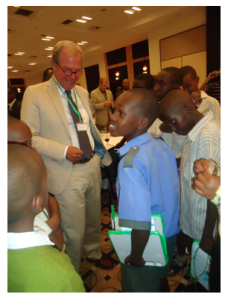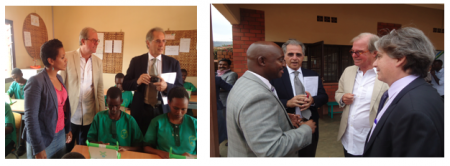- Our “app store” continues to grow, thanks in large part to contributions from Sugar users who have made the transition to Sugar developers. More than 10% of our apps were written by children who grew up with Sugar. Meanwhile, we are approaching eight-million downloads.
- The next generation of hackers
- Not only are Sugar users becoming Sugar activity developers, they are also beginning to work on Sugar itself. A large part of the effort to migrate Sugar activities to GTK-3 has been accomplished by youths; and these same young hackers are submitting patches to the Sugar toolkit as well. They are full-fledge members of our community.
- Internationalization push
- Chris Leonard has led an effort to recruit and assist translation teams so that Sugar has better coverage in the mother tongues and indigenous languages of our users. Over the past twelve months, we have seen substantive progress in the languages of:
- Oceania: MÄori, Samoan (Gagana SÄmoa), Niuean (Vagahau Niue)
- Central and South America: Huastec (Tének), Xi’úi (Central Pame), Aymara (Aru), Quechua (Cusco-Collao)
- These efforts have often included working with the local experts to establish glibc locales for their languages, which will facilitate further localization work on any Linux-based system.
- Sugar in the USA
- While the majority of Sugar users are in Latin America and Africa, we are starting to make in roads into the United States. Programs like the ones led by Gerald Ardito have demonstrated the efficacy of Sugar within the US educational market. Larger-scale efforts by OLPC in Miami and Charlotte are driving growth.
- Teacher communities
- Teachers are forming communities around Sugar to provide mutual support and to drive further pedagogical developments. They are using social media tools to form communities in which teachers and developers discuss problems and opportunities. Amazonas, Australia, et al. are leading the way.
- Community outreach
- Sugar Labs provided support for several developer gatherings, including Sugar Camps in Lima Peru, Cambridge Mass, San Francisco CA, Prague Czech Republic, and GUADEC.
- 2. Isabelle Duston has created a database of images (http://www.art4apps.org/) that is intended to reduce the cost of creating educational apps in particular for literacy. Feel free to use these images in your Sugar activities and to contribute to the database. She is also launching an App Challenge (See www.educationappsforall.org); Sugar activities qualify.3. Edgar Quispe has finished 100% of Aymara for Fructose, a major step in supporting local languages in Peru. Quechua is also making rapid progress.
In the community
4. There are plans to hold the next OLPC SF summit in San Francisco the weekend of October 19-21. We are holding a Sugar Camp following the summit (Oct 22-24). Please register here.
Tech Talk
5. Simon Schampijer announced the “I am a GTK+ 3 shell” release of Sugar and the Sugar toolkit.
6. Daniel Drake announced that a new 13.1.0 development build is available (This one comes with the first development release of the GTK-3 port of Sugar and it is intended for developers to play with it and find bugs to help us solve them before release.)








